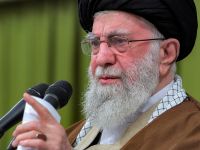The government’s ultimate goal is to cut the deficit to 4 percent of GDP in the coming three to four years, the premier’s top economic adviser said Friday, adding that this target was attainable.
{"preview_thumbnail":"https://cdn.flowplayer.com/6684a05f-6468-4ecd-87d5-a748773282a3/i/v-i-b…","video_id":"b6ae8162-abaf-41a3-ae09-70d99bfb30f8","player_id":"8ca46225-42a2-4245-9c20-7850ae937431","provider":"flowplayer","video":"Top 10 Cities for High Salaries"}
“The 2019 budget sets a deficit reduction to GDP by 4 percent. Two percent comes from reduction in spending and the other two from an increase in revenues,” Nadim Munla told a group of reporters at the Grand Serail.
He stressed that the ultimate objective for Lebanon was to cut the deficit to 4 or 5 percent of gross domestic product in 2022 or 2023.
After 20 marathon sessions, the Cabinet of Prime Minister Saad Hariri endorsed the 2019 draft budget with the aim of cutting the deficit to 7.6 percent this year, compared to more than 11 percent of gross domestic product in 2018.
The ambitious 2019 austerity budget still needs the final approval of the Parliament.
Observers expect lawmakers to approve the new budget despite the objection of a few MPs.
Munla added that a reduction in spending hit almost every single item in the budget.
“With the exception of basic salaries of civil servants, every item in the budget has been reduced. The increase in revenues has really come from big-ticket items. One is the tax on interest income, which will increase from 7 to 10 percent for a period of three years. The other tax increase is the 2 percent duty on most imported goods to Lebanon,” Munla explained.
He added that medication and industrial and agricultural material would be exempted from the new Customs duty.
“And for the first time, we are introducing tax on pension income [for former government employees]. Before, pensioners did not pay any tax on their income,” the adviser added.
The bill also calls for a 3 percent reduction of the salaries of retired Army personal as a contribution for their health and medical coverage.
Munla stressed that Lebanon was trying to meet the commitments it made to the participants at the CEDRE conference, which was held in Paris in April 2018.
The previous government pledged to cut the deficit by 1 percentage point each year for the next five years.
“The actual deficit in 2018 shot up to almost 11.5 percent.
“There was a commitment by the Lebanese government to reduce deficit to GDP by 5 percentage points in five years. The commitment has been technically been met by the Lebanese government,” Munla added.
Munla said the other big goal of the Cabinet was to slash the electricity deficit drastically - by almost 50 percent in 2020 once the new electricity plan has been implemented.
The deficit of state-owned Electricite du Liban has strained the finances of all governments for the past 20 years.
The state power company’s deficit has ranged between $1.5 billion and more than $2 billion a year, depending on the price of oil in the international markets.
“The basic objectives, we believe, in the coming three years are fiscal consolidation and financial stability, as they are a very important part of economic policy in Lebanon,” Munla said.
The adviser underscored the importance of tackling the electricity crisis effectively, as this alone could cut the deficit by 2 to 3 percentage points of GDP.
“The electricity plan, which was approved by the government, can alone contribute to a 3 to 4 percentage point reduction in the budget deficit. We subsidize electricity today by 3.5 to 4 percentage points of GDP. Every percentage point of GDP is equal to $600 million,” Munla said.
The government wants to gradually remove electricity subsidizes in the coming few years and supply 24- hour power to all households, companies, institutions, schools and hospitals.
The Lebanese consumer normally pays around 9 cents for every kilowatt of electricity, while the actual cost to the government is around 14 cents, depending on the price of oil.
Commenting on an S&P report on Lebanon, Munla said the success of the measures depended on the political will of the government to implement the reform targets, as well as on any sudden developments in the region.
“In the budget calculation, it has been assumed that all the revenue measures will kick in only for six months. But we will try to meet all these targets at the end of 2019,” Munla added.
He noted that Lebanon had no control over unforeseen future events that might affect the government’s plan to cut the deficit according to the goal.
The adviser admitted that the 2 percent duty on imports would have an inflationary impact, but said any rise in the inflation rate would not be too alarming.
“Even if we achieve a 3 percent deficit reduction this year, it will be a big achievement,” Munla said.
He described the relations between the government and the Lebanese commercial banks as a marriage contract.
“Just like marriage, there are sometimes complications between the two sides. Obviously, when you ever tax anyone, they don’t like it. The banks and depositors have contributed a lot to the state in terms of taxes,” he added.
Munla was alluding to the 10 percent tax on interest income proposed in the budget.
“This tax is only for three years, and then the tax on interest rates on deposits will return to 7 percent,” he said.
Munla said that banks would continue to subscribe to Lebanese sovereign bonds in the future, despite the 10 percent interest income tax.
He projected GDP growth in 2019 to range between 1 percent and 1.2 percent this year.
Munla indicated that Lebanon could achieve higher GDP growth if the country had a good tourism season this summer.
He also voiced strong support for the implementation of a consolidated income tax in Lebanon in the future.








